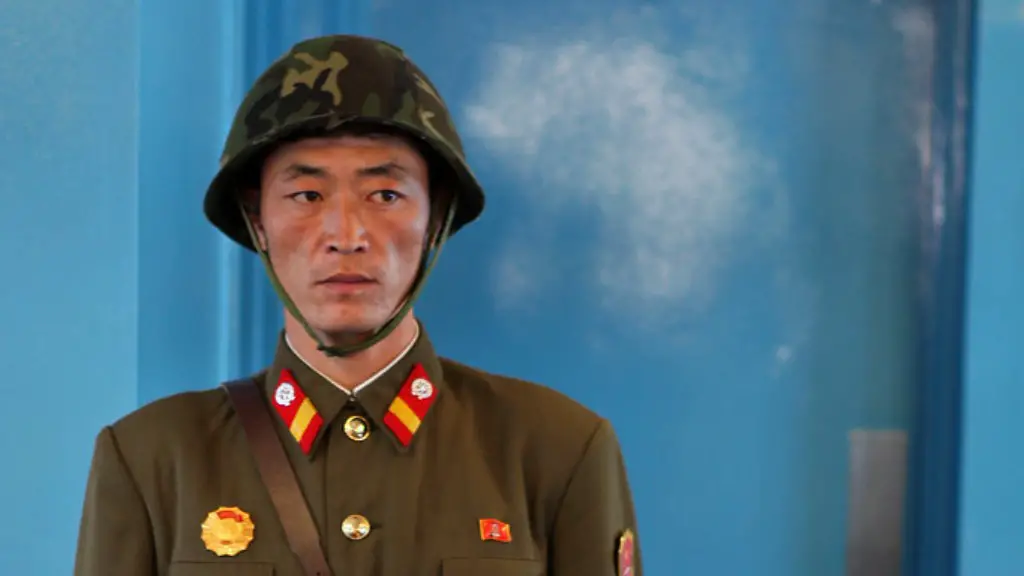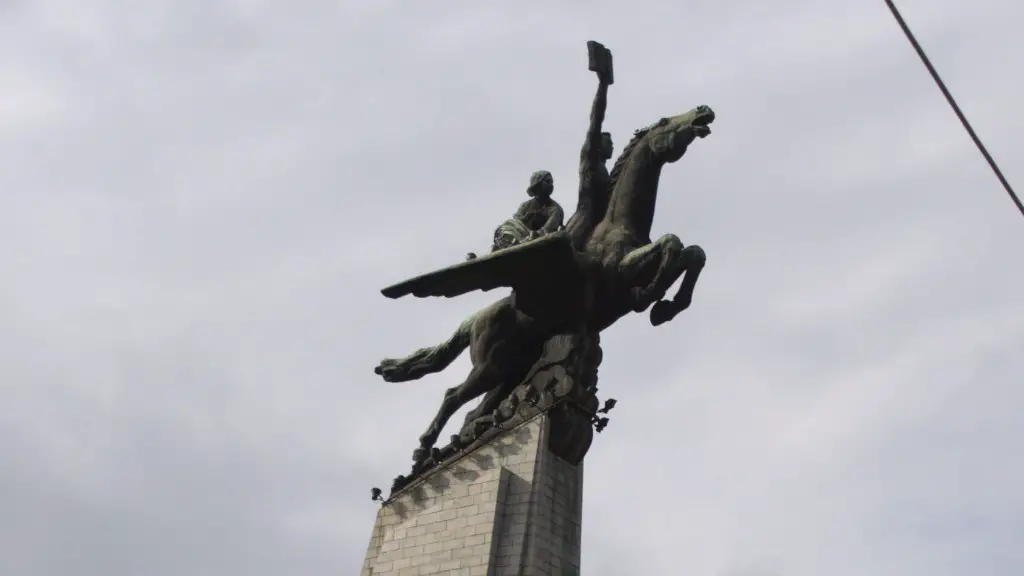What Are UN Sanctions On North Korea
In August 2017 the United Nations Security Council passed Resolution 2371 imposing a resolution of economic sanctions on North Korea. The UN sanctions imposed a ban on coal, iron ore, lead, lead ore and seafood exports from North Korea. It also prohibited other countries from opening new joint ventures, conducting imports from North Korea, and transferring funds to the country. Additionally, Resolution 2371 limited the number of North Koreans permitted to work overseas.
The UN sanctions sought to limit the profits North Korea has generated through its exports and to restrict the amount of foreign currency it has access to. This in turn was meant to reduce its financial resources to fund its nuclear missile system. According to Dr. Stephan Haggard, a professor of Korean Studies at the University of California, San Diego:
“The coal ban will reduce the significant revenues North Korea earns from exports to China. It also bans employment of North Korean nationals abroad, cutting off another major source of income. If fully enforced, this will cramp the luxury lifestyles of North Korean elites, who have become accustomed to a steady supply of expensive imported goods over the years.”
In October 2017 the United Nations Security Council passed Resolution 2375 imposing a number of additional measures on North Korea. It limited the total amount of refined petroleum imported by North Korea each year and prohibited the export of North Korean natural gas and food products. The resolution also placed a ban on imports of textiles from North Korea.
The sanctions imposed by UN Resolution 2375 were meant to tighten the economic vise around North Korea and reduce its access to foreign currency. According to Dr. Haggard:
“The psychological impact [of Resolution 2375] may be large, given the focus on luxury goods at the heart of the North Korean elite’s life style. Limiting energy imports will also have an economic impact, though just how much is unclear given the low levels of energy imports.”
The UN sanctions have been strongly opposed by North Korea, which has stated that these measures are illegal and unjustified. The country has argued that the UN sanctions are a violation of its national sovereignty, and UN Resolution 2375 has been described by the North Korean Ministry of Foreign Affairs as an “act of war.”
The effectiveness of the UN sanctions is still in question, as North Korea continues to make significant progress in developing its nuclear missile technology. According to Dr. Haggard, contrary to the intentions behind them, the sanctions could actually be playing into the hands of North Korean leader Kim Jong-un:
“The strategy of sanctions, even if strictly enforced, seems unlikely to achieve the lofty objectives of eliminating North Korea’s nuclear and ballistic missile programs. It may even be counterproductive in the sense that it facilitates the current leader’s preferred narrative of a besieged state victimized by foreign enemies, who allegedly will not let the country develop.”
Resolution of UN Sanctions
At the start of 2019, the UN Security Council unanimously voted to lift the restrictions imposed by its previous resolution on North Korea. The aim of this move was to provide a platform for further negotiations between North Korea and the United States. The new resolution directed the UN’s North Korea counter-proliferation committee to assess possible revision of sanctions as part of a diplomatic resolution of the nuclear issue.
The resolution encouraged North Korea to take confidence-building measures such as a ban on nuclear weapons development and proliferation activities, as well as halting the production of fissile material. Additionally, it encouraged all the parties involved in the conflict to fully implement the agreements reached in the previous talks and contribute to the peaceful settlement of the issue.
Although the resolution was unanimously passed by the Security Council, it has receive criticism from experts. According to Dr. Haggard, the resolution is too vague and has not been backed up with actions from North Korea.
“ North Korea’s behavior toward the resolution is unclear. Some of the phrases in the UNSC resolution seem to open the door for softer policies by the United States or other members. But when read in full, the text does not amount to a significant loosening of the sanctions regime. North Korea has not declared what it is prepared to do in exchange.”
Implications of UN Sanctions
The UN sanctions imposed on North Korea are having serious implications for the country. Aside from the direct effects of reduced financial resources and decreased foreign currency, the sanctions are also affecting the population in other ways. For instance, increasing prices of basic commodities, a lack of access to healthcare and education, and growing food shortages have become more pronounced in recent years.
In addition to these economic problems, the sanctions are also having political implications. By attempting to contain North Korea’s nuclear program, the UN is also helping to isolate the country both politically and diplomatically. This could in turn lead to further tension with other countries and a lack of international cooperation.
The sanctions have also caused a rift between the US and China, which has been accused of not being serious about implementing the UN regulations. According to Dr. Haggard:
“China’s priority appears to be containing the United States as much as North Korea. The US has responded with other measures implemented outside the UN framework, such as strengthened sanctions on Chinese firms deemed to be violating the UN sanctions regime. Whether this will translate into greater Chinese pressure on North Korea remains to be seen.”
Impact On The Region
The impact of sanctions on North Korea also extend to neighboring countries, particularly with regard to regional security. Fear has been growing in countries such as South Korea and Japan about whether North Korea might deploy its nuclear weapons in a conflict situation.
Furthermore, if the UN sanctions are successful in hampering the North Korean nuclear program, other countries in the region such as Japan and South Korea could also be incentivized to develop their own nuclear weapons capabilities. This would exacerbate the security situation in the region, as other countries would be more likely to engage in a nuclear arms race.
Such a situation would also potentially lead to further instability in the region, as other nations attempt to counter-balance each other’s growing nuclear capabilities. According to Dr. Haggard:
“ Other countries will view any additional nuclear capabilities in Northeast Asia with grave concern. Sanctions may have pushed China to cooperate more, but they may have also motivated China to put greater pressure on the United States to reduce its military presence in the region while incentivizing others, such as Japan and South Korea, to consider more independent nuclear deterrents.”
International Opinion On Sanctions
International opinion on the UN sanctions on North Korea remains divided. According to a survey conducted in 2018 by the Pew Research Center, 55% of respondents outside the United States and South Korea believe the sanctions are having a positive effect on North Korea.
In particular, countries such as the UK, France and Germany were supportive of the sanctions, with 65%, 57%, and 51% of respondents agreeing with their effectiveness. However, the survey also found that opinions on the sanctions vary based on the respondent’s geographic region. For instance, 62% of respondents in East Asia were opposed to the sanctions, while only 33% of respondents in Africa were in favour of them.
Conclusion
Despite the varying opinions on the effectiveness of UN sanctions on North Korea, the ramifications of their implementation remain unclear. The sanctions have had the desired effect of limiting North Korea’s access to foreign currency, but they have also led to further regional instability and insecurity. It is difficult to predict what the long-term effects of the sanctions will be, as there are many factors that can influence their efficacy.
Reactions Of The North Korean Government To Sanctions
The North Korean government has been highly critical of the UN sanctions imposed on it. It has argued that the sanctions are a violation of its national sovereignty, and have resulted in serious economic and political challenges. North Korean officials have accused the United States and other countries of trying to weaken the country through the sanctions.
At the same time, North Korea has also sought to express its willingness to negotiate by suggesting possible compromises. For instance, in a speech to the National People’s Assembly in July 2017, North Korean leader Kim Jong-un stated that the country would be willing to abandon its nuclear weapons program if the US abandoned its hostile policies towards North Korea.
This has led to speculation in some quarters that North Korea may be willing to negotiate away some of its nuclear weapons capabilities in exchange for the lifting of economic sanctions. However, so far there have been no formal negotiations between the two parties.
Future Of UN Sanctions
Looking forward, it is uncertain what the future of UN sanctions on North Korea will be. Some experts argue that further sanctions should be imposed on North Korea, such as a total ban on energy exports and international travel.
Other experts argue that the UN should remove all sanctions on North Korea and pursue a policy of dialogue and engagement. According to Dr. Haggard, “Sanctions shouldn’t be seen as an end in themselves but as a tool for diplomacy that is only effective if it can be linked to an alternative strategy for managing the problem.”
International Pressure On North Korea
International pressure on North Korea is likely to remain high regardless of the UN sanctions. Countries such as the United States, China and Japan are likely to continue to apply pressure on North Korea to abandon its nuclear ambitions and pursue a diplomatic resolution to the conflict.
In particular, the US has been vocal about its stance on North Korea, with President Donald Trump publicly accusing the North Korean government of “unparalleled evil” in his September 2018 speech to the United Nations. The US has also joined forces with Japan and South Korea in imposing additional economic sanctions on North Korea, including the cutting off of oil shipments and the freezing of the country’s overseas assets.
UN Role In Future Negotiations
The role that the United Nations will play in any future negotiations between North Korea and the US is an open question. The UN has played a central role in previous negotiations, but the recent shift towards a more unilateral approach by the US has raised doubts about its potential involvement in a diplomatic resolution.
The UN remains committed to finding a peaceful resolution to the conflict, stating that “all parties must exercise restraint, work together to reduce tensions and contribute to the maintenance of international peace and security.” It is unclear, however, whether the efforts of the UN will be sufficient to bring the two sides to the negotiating table.


